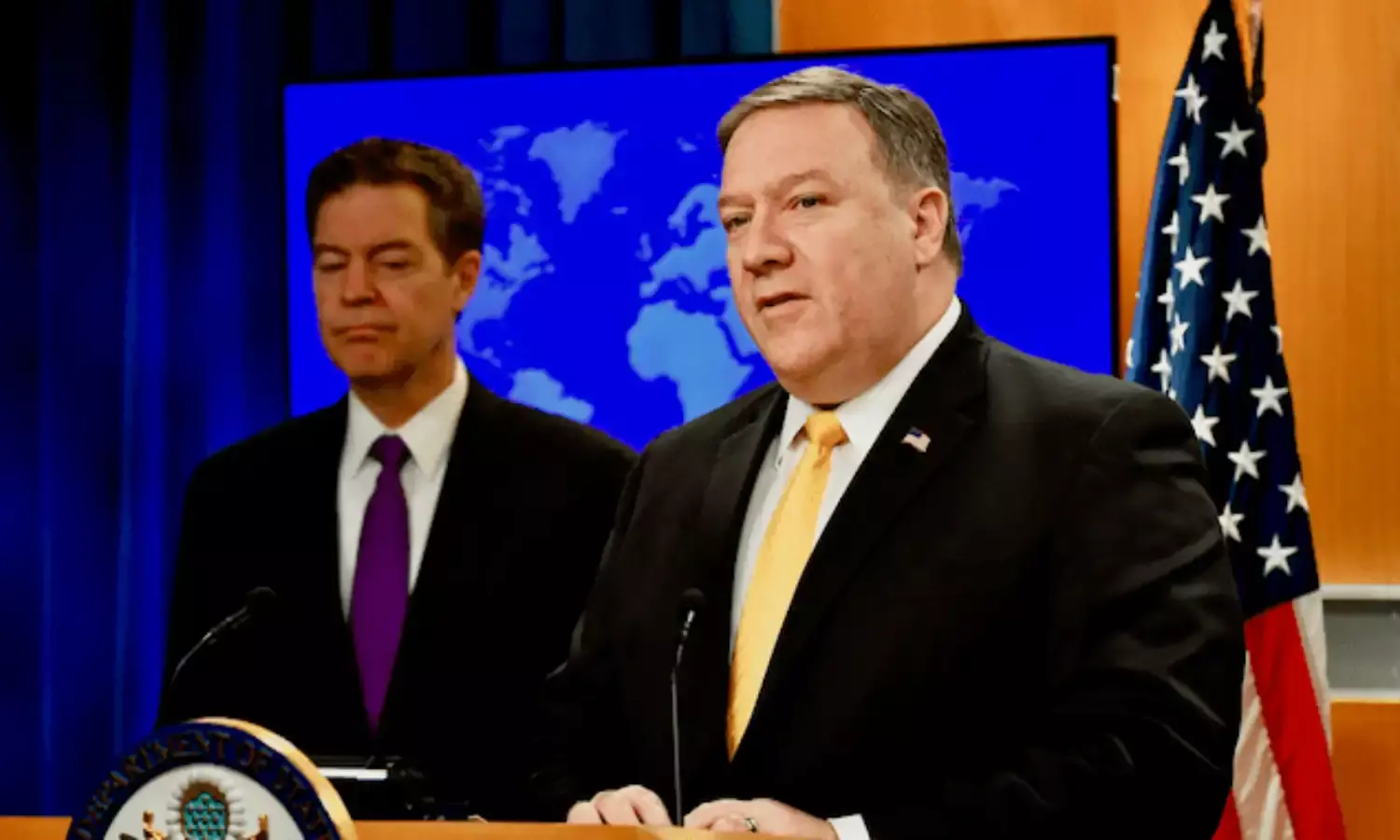As Mike Pompeo Crafts Anti-Iran Coalition in West Asia, US Watches Chabahar Closely
Progress with the Taliban and a possible withdrawal from Syria and Afghanistan meanwhile

The sudden eight-nation tour of west Asia by US Secretary of State Mike Pompeo has surprised players in the region’s geopolitics. Besides its abrupt announcement, the visit also follows the US President Donald Trump’s recent declaration of a troop withdrawal from Syria and Afghanistan.
To better understand the intention and impact of Pompeo’s ongoing circuit of west Asia, we converse with Theodore Karasik, senior advisor to Gulf State Analytics, a geopolitical risk consulting firm based in Washington DC.
‘Pompeo’s visit to the region is part of a larger process and unfortunately many analysts and armchair pundits are missing the larger picture,’ according to Karasik. He explained that the speeches given by Pompeo, especially at the American University in Cairo, have been misread: ‘The Cairo speech was not for America, instead it was directed towards Iran and the other west Asian countries.’
Pompeo’s Cairo speech falls in tandem with the ulterior motive to build a larger coalition against Iran, Karasik believes. It has been a subtle yet significant aspect of Trump’s foreign policy to periodically showcase the ‘nefarious’ activities of the Iranian government, especially its development of trained militia along with its progress in space and ballistic missile technology.
How far is this different from the approach of previous US administrations? Karasik emphasised that the process of creating a unified bloc against Iran has been erratic, fragmented and often fragile. ‘Bilateral agreements between the US and every Gulf country are being updated and modified. The timing of the Qatar blockade and its ramifications have played a detrimental part,’ he said.
In this new phase of US foreign policy, according to Karasik, each Gulf country is seen individually, instead of a cohesive group.
‘The main idea is to pull the centrifugal forces together to create a coalition before the anti-Iran conference to be held in Poland in February,’ he stated.
The idea behind this conference is revealed by the recent comment of Jacek Czaputowicz, the Polish government’s foreign minister, who clearly stated that Iran’s language was ‘hard to accept’.
Interestingly, besides Russia, an invitation to the conference was also rejected by the European Union’s foreign policy chief Federica Mogherini. Thus, several political pundits are questioning the essence and intention of this high-profile conference.
At the same time, besides the US there are several other processes at work focused on creating the anti-Iran discourse, distancing it even further from the geopolitical reality.
‘For example, a backchannel between US Chief of Staff Dunford and Russian Chief of Staff Gerasimov is critical in de-confliction issues, not only in the Levant but beyond. The UAE plays a major role in what is happening in the region as well, and there is coordination occurring, with Abu Dhabi reopening its embassy in Damascus,’ Karasik said.
‘This move by the Emiratis is meant to complement what Pompeo is trying to achieve in the region, which is to help build momentum for the anti-Iran coalition, but also to work with Moscow on getting Iran out of Syria as best as possible,’ he reflected.
The ongoing cooperation between Russia and Jordan - which was Pompeo’s first stop on his tour - including in counter-terrorism operations, would only add chaos to the chessboard of west Asian geopolitics, Karasik felt. The manner in which both these countries cooperate with the UAE will have serious implications in the near future.
As for the impact on south Asia, ‘both India and Pakistan are closely following US-Iran relations. The Trump administration is dealing with India and Pakistan individually, depending on how they are politically tied with Iran. This will definitely impact the longevity of the Chabahar port,’ Karasik said.
At the same time, the US is fully supporting the various Emirati investments in Pakistan as well as India. This is part of the larger plan to shore up southwest Asia, especially as Iran’s respective bilateral projects become established.
But instead of getting swept away by Pompeo’s visit, Karasik remarked, the multi-track progress with the Taliban should not be ignored. The various groups and segments involved need to be carefully studied.
The agenda is definitely to reduce the American footprint in Afghanistan, but the entire geopolitical spectrum needs to be carefully studied, he said.



